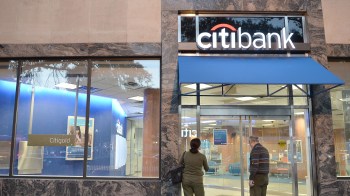What are banks supposed to do?
TEXT OF INTERVIEW
Tess Vigeland: It’s been two years since the darkest days of the financial crisis. There’s plenty that’s different about our economy. New financial reforms, power in Washington shifted. But has Wall Street really changed?
That’s a question you’ll find in this week’s edition of The New Yorker magazine. Actually the question in the article’s title is “What Good Is Wall Street?” And for some answers, its author joins us. John Cassidy, welcome to the program.
JOHN CASSIDY: Thanks for inviting me on.
Vigeland: So I’d like to ask you a question that will seem oh so obvious, but I think perhaps isn’t anymore, which is: What is a bank supposed to be?
CASSIDY: Well that’s a very good question. I mean, in the old days, banks were supposed to be places where people placed their deposits and then the banker took that money and lent it to a local firm somewhere to invest in factory, or a new building or whatever. The bank was basically a financial intermediary; they’d take money from some people and lend it to other people.
Vigeland: But yet you talk at length here about how banks aren’t just lending money anymore; they’re basically huge trading operations. And the question is whether that helps anyone but them, right?
CASSIDY: You see what’s happened over the last 20 or 30 years is Wall Street and the banking system have morphed together, so giant banks like Citigroup and Bank of America and Wells Fargo — they’re banks in the old sense but they’re also banks in the new sense: they’re investment banks, they do a lot of trading. In fact the vast majority of the money they make comes from trading securities, which is more to do with shuffling around assets that already exist, rather than financing the building of new factories and the creation of new firms.
Vigeland: One of the folks you interviewed was Paul Woolley at the London School of Economics, and boy, the quote he gave you really stood out for me. He told you that the banks are like a cancer that will eventually take over the entire economic body. Does financial reform do anything real to prevent that?
CASSIDY: Well we’ll see, won’t we, going forward. What Paul is referring to is the fact that if you think about banks, what are they supposed to do? They’re supposed to raise money for people; they’re like agents. If you think for writing as an agent who raises the money for him to write a book. So they deserve an agency fee. Now the average agent gets 10 or 15 percent, and if you look back over history, that’s about what banks got. They took about 10 or 15 percent of the profits of the entire economy. What happened the past 10 or 15 years is, their agencies fees went up enormously. So in 2006 for example, they were taking about 35, more than a third of the entire profits in the economy. The banks exist to facilitate investment and prosperity on behalf of everybody else. But what’s happened over the last 20 or 30 years is, and in some sense the rest of the economy, is working for the banks. They’re extracting rent from the rest of the economy and they’re just become far too big. I think most economists would agree with that.
Vigeland: And do you foresee a day when we will go back to where they are service providers for the rest of us?
CASSIDY: Not in the immediate future. The problem — this is a difficult policy issue, I’m not saying it’s easy — but the problem is we’ve come out of this financial crisis with bigger banks than ever before.
Vigeland: In the piece, you point out that for decades, there was a general mistrust of the banking industry after the Great Depression. And that kind of kept things in check. We are now in an era also of great outrage and mistrust, but given that, how is it that we are so quickly back to massive profits for these banks? You even hear that they are taking part in writing the regulations under the financial reform law.
CASSIDY: Right. The return to profitability is actually a sort of good thing in a sense; there were only two options really for the government. They either had to nationalize these big banks because they’re in such bad shape, or they had to allow them to earn their way back to profitability. But the question is now that they are restored to financial health, what are they going to do with all the money? They’re still not doing what banks are supposed to do in financing the rest of the economy.
Vigeland: John Cassidy is a staff writer for the New Yorker, and we’ve been talking about his article “What Good is Wall Street?” in this week’s edition of the magazine. He’s also author of the book, “How Markets Fail: The Logic of Economic Calamities,” and you can find more on Marketplace’s The Big Book. John, thank you so much.
CASSIDY: Thank you.
There’s a lot happening in the world. Through it all, Marketplace is here for you.
You rely on Marketplace to break down the world’s events and tell you how it affects you in a fact-based, approachable way. We rely on your financial support to keep making that possible.
Your donation today powers the independent journalism that you rely on. For just $5/month, you can help sustain Marketplace so we can keep reporting on the things that matter to you.


















